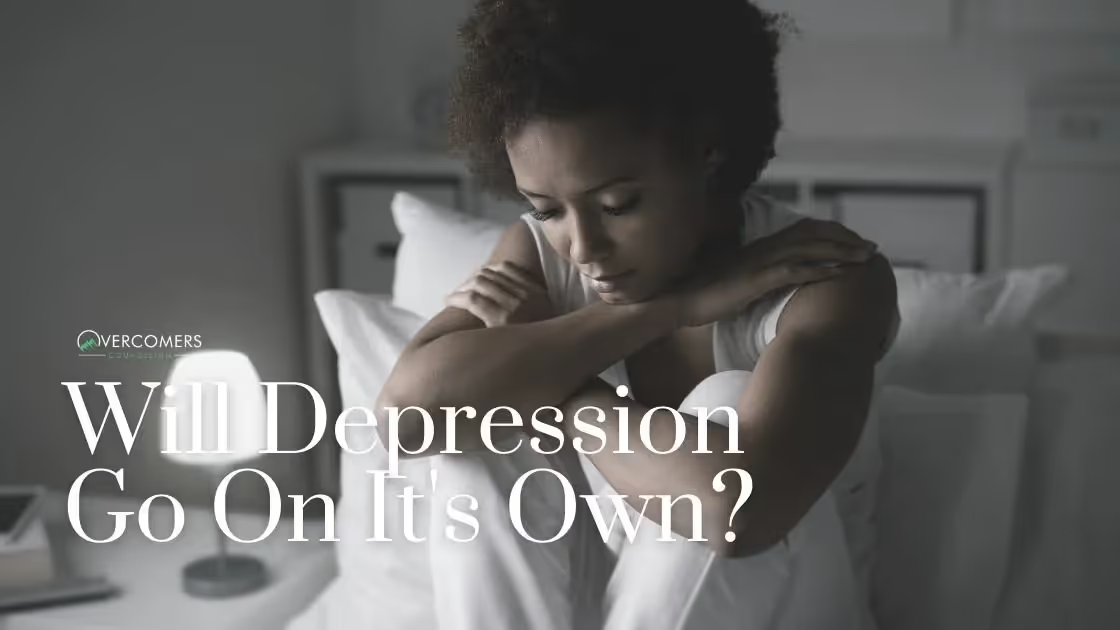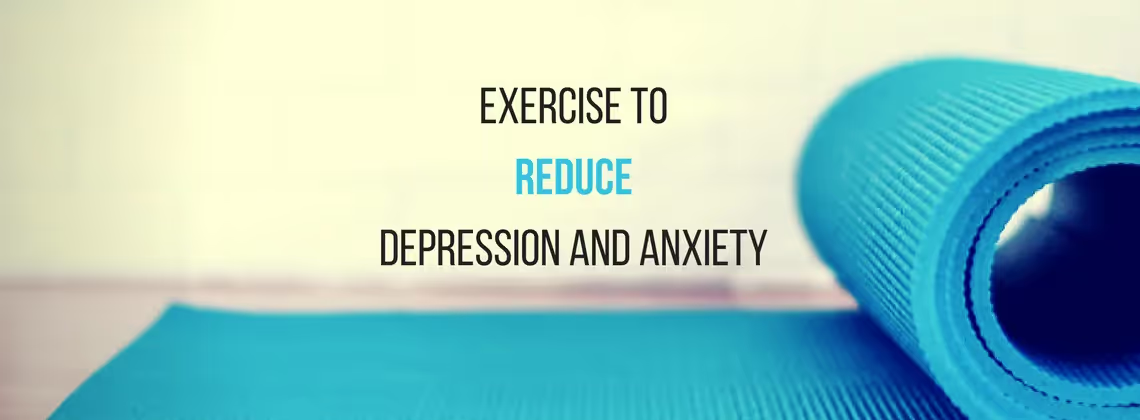Depression affects most people at some point in their lives.It may not be clinical depression, but that does not change the fact that everyone has tough...

Depression affects most people at some point in their lives.
It may not be clinical depression, but that does not change the fact that everyone has tough days where motivation is low and negative thinking is high.
There seems to be a rather arbitrary difference between feeling depressed and having clinical depression anyway, so the main question is, what can you do about it?
Luckily the answer is pretty straightforward.
Move your body, move your mind.
This may seem a little odd, after all, how does one "move their mind"
To start, think of your mind as a train that has multiple tracks it can be set on and you have the power to change which tracks that train is traveling on at any given moment.
If you don't move your mind and switch the track, then you are simply allowing your mind to ride the wrong track without question.
This can be more difficult than it sounds, and that's where moving the body can come in real handy.
If you start moving your body, you automatically start moving your mind, you can't help it, it's just what your mind does when your body starts doing what it is supposed to.
This might seem odd but think about it.
When you are depressed what is the number 1 thing you spend your time doing?
My guess, mindlessly scrolling on social media or equally mindlessly watching shows.
In either case, neither your body nor your mind is moving, you are just gliding on autopilot.
That's why today, we are looking at different ways of moving your body and mind to decrease depression.
Maybe a good place to go from here is to break down why moving your body helps move your mind.
Let's start with the obvious question- when was the last time you moved your body?
Then the less obvious question of, what were thinking about when you were moving your body?
There's a good chance that your mind went from topic to topic bouncing from responsibilities to plans to how hard it is to move your body back to your responsibilities.
I would also guess where your mind wasn't- depressed.
But why is that?
Why, if you move your body, does your mind put itself in a completely different place than when you aren't moving?
There isn't a definite, and certainly not singular, the answer to this question but part of the reason is the effect that physical movement has on brain chemistry.
For instance, planning to exercise or move your body automatically activates dopamine which is in charge of motivation and pleasure.
The exercise itself releases endorphins and adrenaline which makes you feel good and boosts your energy.
While your brain chemistry is changing, so is the focus of your thoughts.
To paraphrase Newton's first law of motion; a body in motion tends to stay in motion, while a body at rest (depressed) tends to stay at rest.
Now that we understand a bit more about the why, let's look at the how.
There is certainly no shortage of ways to move your body.
The simplest, most readily available, and least difficult way to move your body is to take a walk.
Yup, as simple and easy as it gets.
15-20 minute walks taken every day help activate all the wonderful brain chemistry we talked about above.
It really doesn't matter where you're walking or how sunny or rainy it is, it just matters that you make a plan to move your body and you stick to it.
If you aren't ready to take the literal first step there are plenty of other options available to you in your own home, with no weights, bands, or ropes required.
Here are a few excellent ways to move your body at home:
These are five easy-to-use exercises that don't require any equipment whatsoever.
The recommended amount of daily exercise according to the Mayo Clinic comes down to a mere 30 minutes per day.
If you did each of the above exercises for a minute that would only be a 5-circuit exercise every day and you hit the recommended amount.
Not a bad bargain when it comes to decreasing depression.

Okay, so we know that if you move your body it will help you move your mind.
But what if your depression is so severe that exercise is just not going to happen?
I would highly recommend reaching out to a mental health care provider so you can get the support you need to start making healthy changes to your daily habits and have a place to identify the hurdles that are holding you back.
I would also recommend working on something called cognitive challenging.
Cognitive challenging is a very popular tool used by nearly every mental health practitioner when treating depression.
Cognitive challenging is a way to become more in tune with your thoughts and is extremely helpful in moving your mind.
It starts off with noticing what thoughts you are telling yourself.
Most people don't realize what they're thinking, they get swept up in whatever thoughts they have without stopping to consider that their thoughts may actually be wrong.
When it comes to depression, many thoughts patterns go in negative downward spirals like this: I'm depressed, nothing I do work out, here are some of my failures that prove nothing works out, that's why I'm depressed."
Cognitive challenging is the practice of stopping that train of thought and changing that track to a more positive and productive one.
This takes time and practice but is very effective.
Working with a mental health professional will really help you build this tool to its full capacity.
If you struggle with depression, the most important takeaway I want you to have is that there is hope.
You are not doomed to an eternity of that feeling.
Move the body, move the mind, and you may be shocked at how much better your life can be.
The mind and body are so closely linked that what one does drastically impacts the other.
The best way to approach depression is to move the body and to move the mind.
Daily exercise will start to change the chemicals in your brain, gradually lifting your depression.
Using tools such as cognitive challenging will help you derail those negative downward spirals and put your thoughts to work for you instead of against you.
Depression is not a helpless condition, it just takes time and effort.
Contact a mental health care professional today to help you get back on your feet and beat depression.
The duration of depression counseling varies for each individual, depending on the severity of their depression and their progress in therapy. Our therapists will regularly assess your progress and adjust your treatment plan as needed.
If your symptoms of depression have been persistent and interfere with your daily life, it's important to seek help from a mental health professional. It's also a good idea to get medical advice if you experience any thoughts of self-harm or suicide.
While medication is not always required for managing depression, it can be beneficial in some cases. If you decide that medication is right for you, medications such as antidepressants work by balancing certain brain chemicals involved in regulating moods. Other options include mood stabilizers or antipsychotic drugs which may also prove helpful for certain individuals struggling with symptoms of depression.
There are many helpful resources available, including support groups, online forums, books and websites dedicated to mental health and wellness. Connecting with other people struggling with the same issue can be especially beneficial. Additionally, talking to a trusted friend or family member can provide much-needed social support during difficult times.
Depression is a mental disorder (a common one) that affects millions of people worldwide. It is characterized by persistent feelings of sadness, hopelessness, and loss of interest in activities once enjoyed.In this section, we will discuss the various types of depression, including major depressive disorder, persistent depressive disorder, and bipolar disorder.Gaining a deeper understanding of your depression is the first step in finding the right treatment and support.
Yes! There are many effective natural remedies that may be beneficial in managing depressive symptoms, such as participating in regular physical activity, changing your diet, getting adequate sleep, practicing relaxation techniques like yoga or meditation, journaling about your feelings/thoughts/emotions, seeking out social activities/support groups with other individuals struggling with similar issues